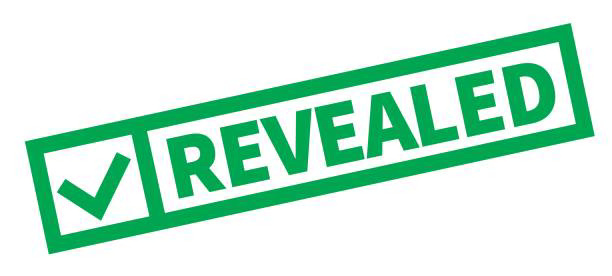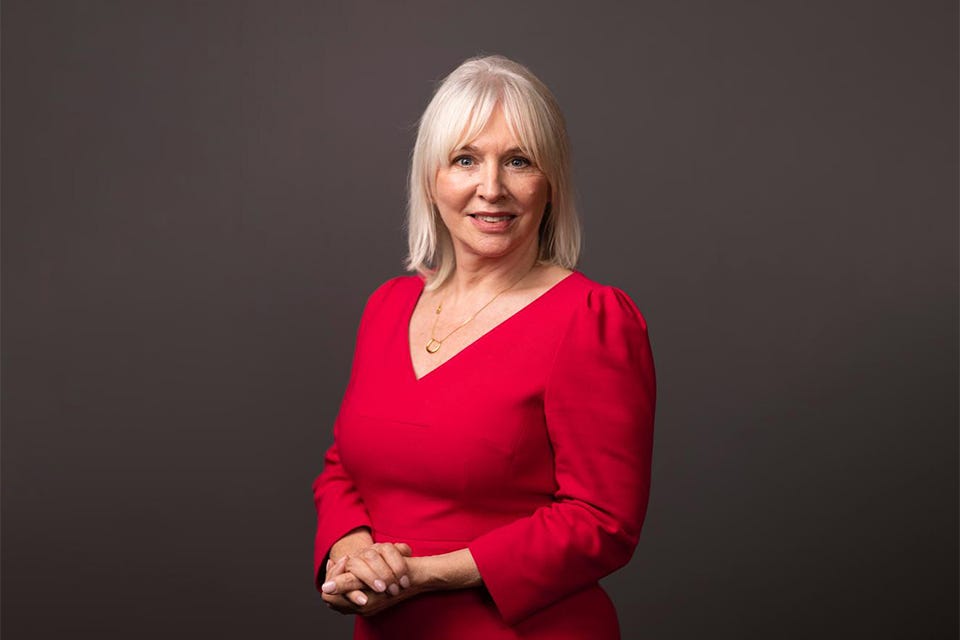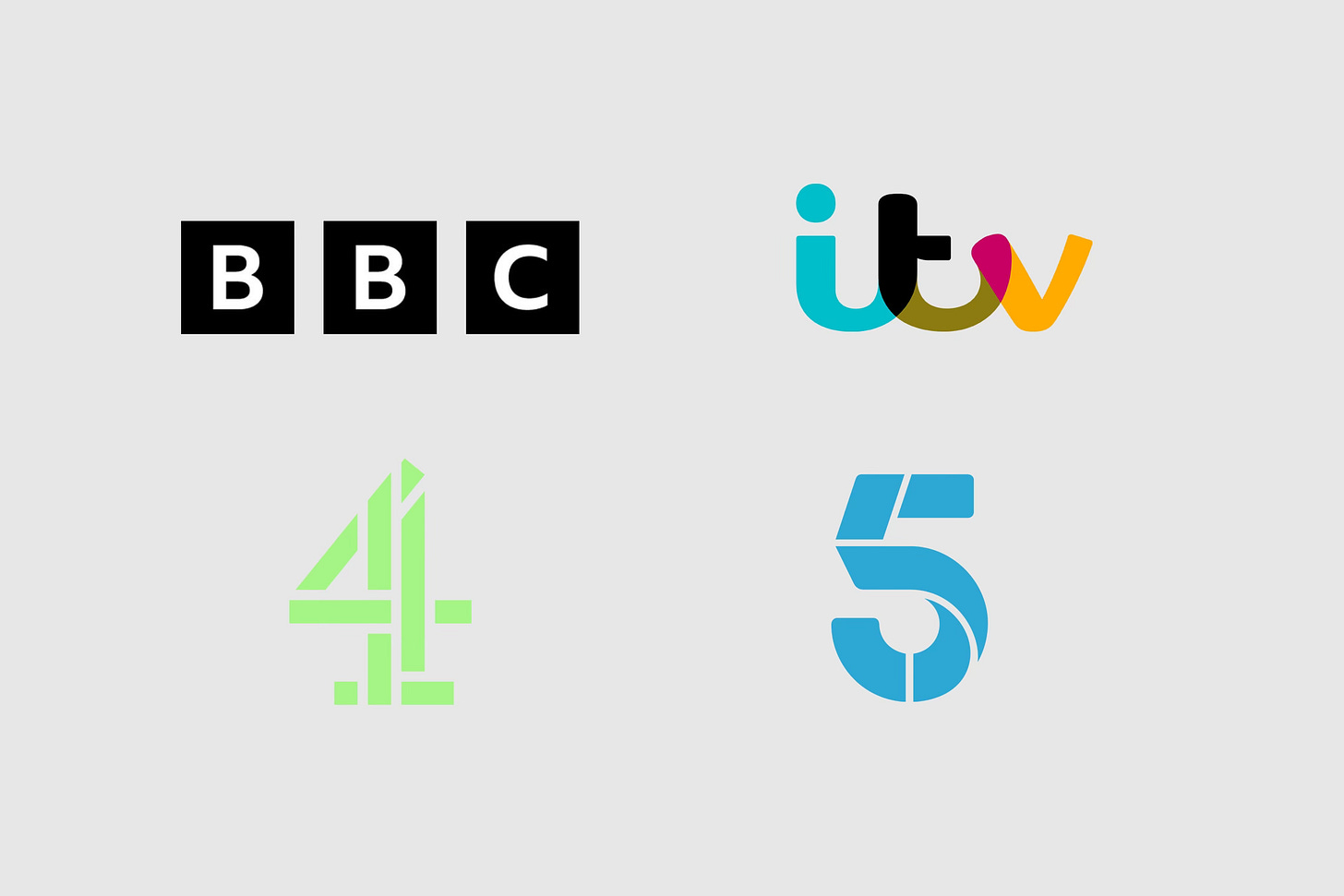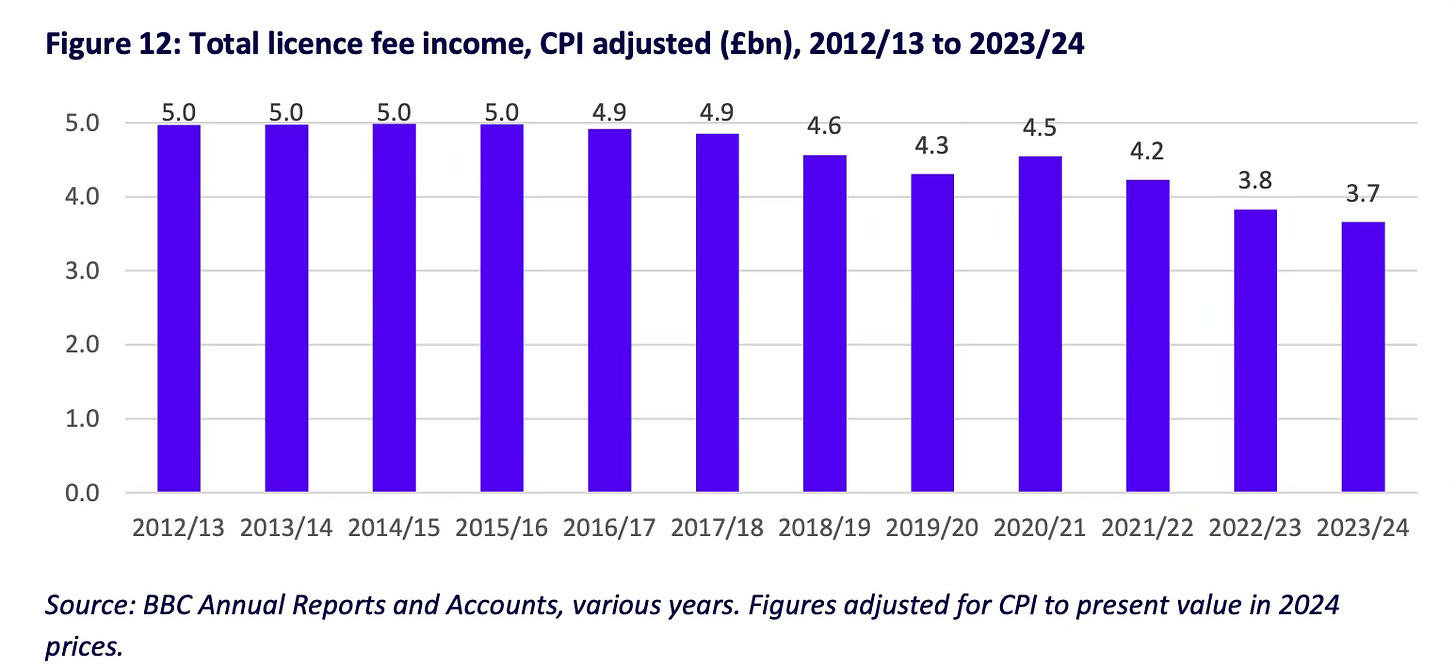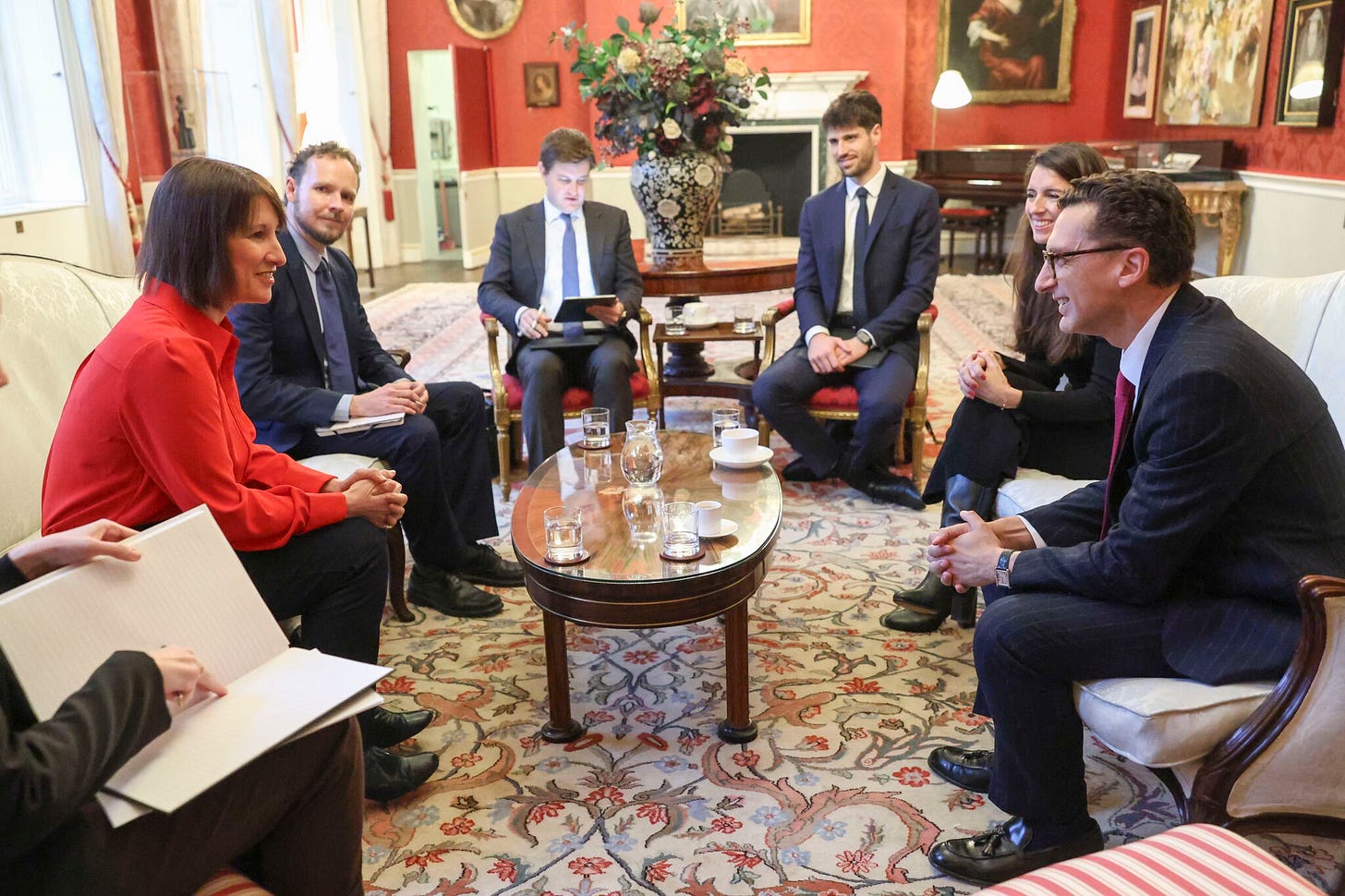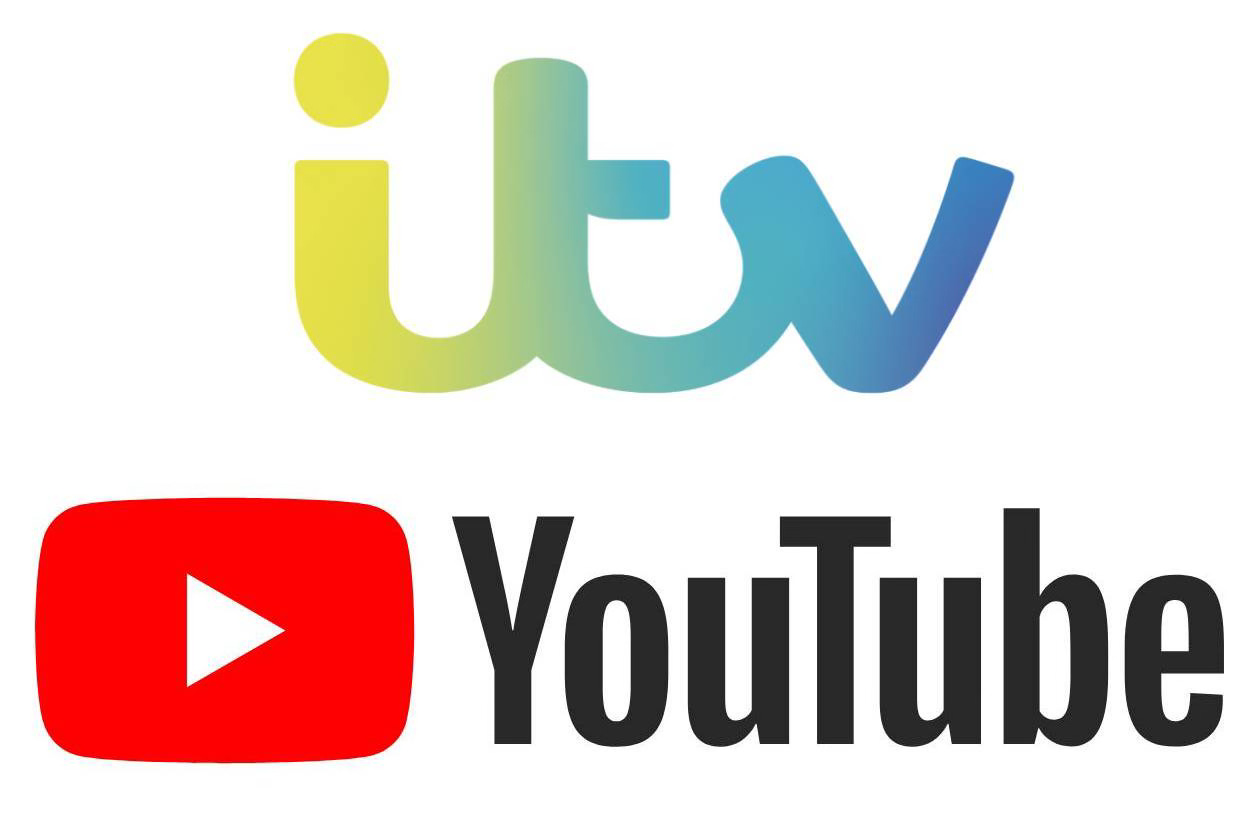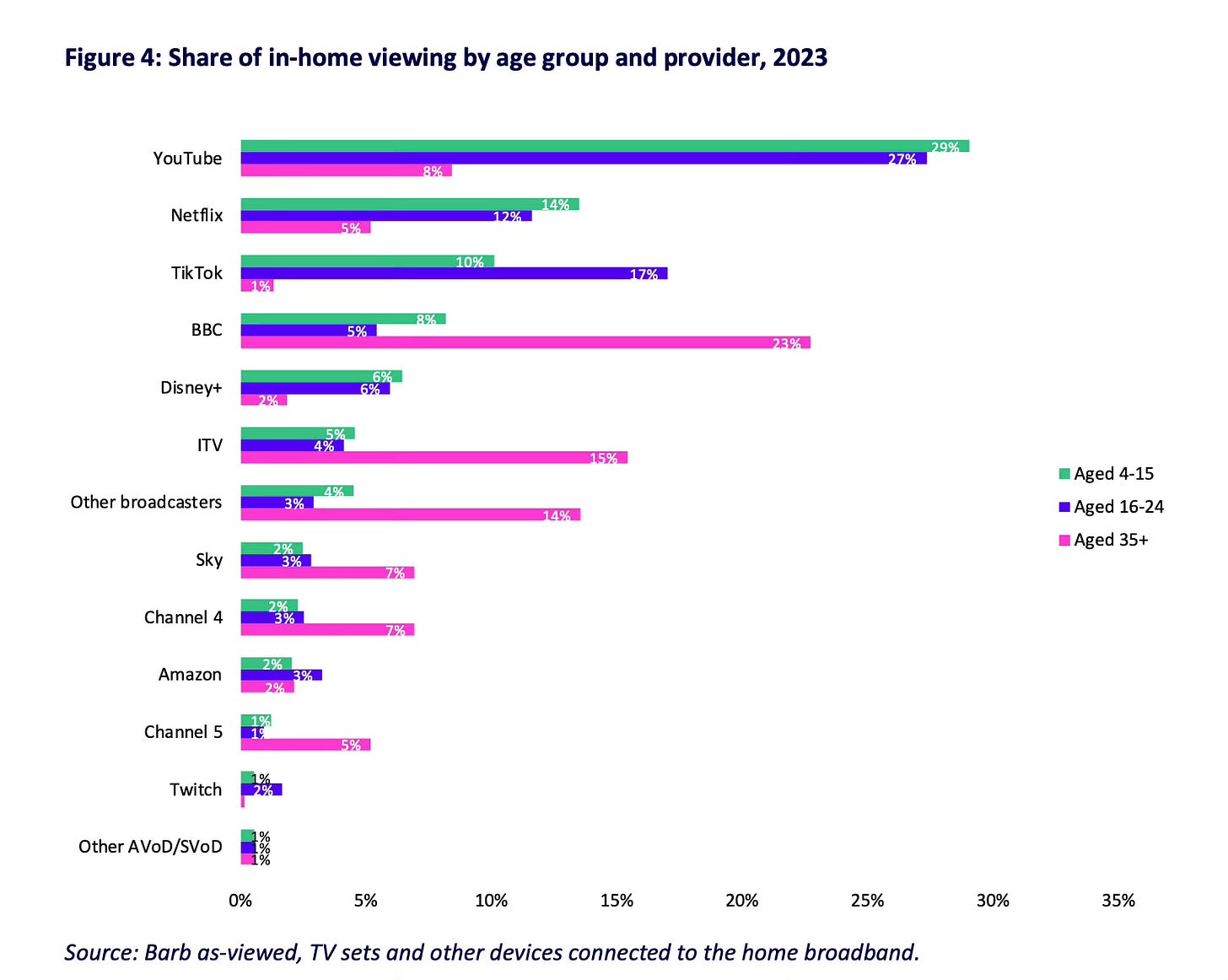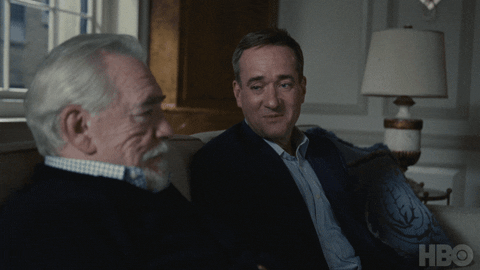Revealed: 'Astonishing lack of regard' for Channel 5 - and 'significant' financial woes for PSBs
ScreenPower: where TV and Film meet politics and power
Hello and welcome to ScreenPower: a free newsletter from the intersection of the UK’s screen industries, with Westminster and Whitehall.
In today’s edition:
🚨 ScreenPower Exclusive: DCMS Ministers haven’t even discussed the future of Channel 5 - despite its sale being announced five months ago. A former Secretary of State gives me her take.
Also:
👊 Ofcom warns of ‘significant financial challenges’ facing PSBs…
👊 Chancellor Rachel Reeves makes Canal+ feel welcome in London…
👊 Does ITV’s deal with YouTube make sense?…
👊 And who is the new face on the CMS Select Committee?
Plus:
🎄 A seasonal quiz! I’ve hidden the names of at least eight Christmas films in today’s edition. Email me with your best effort - the winner gets a shout out in the New Year. 🥳
⚠️ ScreenPower Exclusive: Ministers haven’t discussed the future of Channel 5 - months after Paramount takeover was announced
Last week I wrote about how nobody seemed to be talking about the future of Channel 5, which is being sold along with its parent company Paramount Global to the world’s second richest person.
Incredibly, it now turns out that ‘nobody’ includes Government Ministers.
ScreenPower exclusive: A Freedom of Information (FOI) request submitted by ScreenPower reveals that DCMS Ministers have held no meetings whatsoever to discuss the sale and what it could mean for Channel 5 or its viewers, since the deal was announced in July. Not internally, not with Ofcom and not with Channel 5.
The exact wording: On 9th December DCMS told me “We can confirm that the merger of Channel 5’s parent company Paramount Global with Skydance Media has not been discussed at any meetings at which DCMS Ministers (including the Secretary of State) have been present.”
Why does this matter? I won’t rehash what I wrote last week, so I’ll boil it down to three points:
British public service broadcasting is at a precarious moment (more on this in the next story re Ofcom’s report);
Channel 5 is worth protecting;
Ownership matters.
It’s not just me saying this: Nadine Dorries (below) was DCMS Secretary of State during the Johnson government - a time of lively debate surround the future of public service broadcasting. She told ScreenPower she thought it was “pretty staggering that Ministers haven't even discussed this.”
Overlooked PSB “Channel 5 is a really important part of Britain's broadcast landscape”, she told me, “but it doesn't get the same attention in Westminster as Channel 4 or the BBC - perhaps because it's mostly watched by people outside of London.”
Process: “There's a formal process for looking at these sort of deals”, Dorries explained, “which presumably will kick in at some point. But even so, if it were me in DCMS, as soon as the deal was announced I'd have been discussing it with officials, with Ofcom, and with channel 5.”
‘Astonishing’: “I think it shows an astonishing lack of regard for the channel and its viewers, at a time when public service broadcasters clearly need support”, Dorries told me.
What else did we learn from DCMS: In replying to my FOI request, DCMS also revealed that their new Ministers haven’t met with Skydance Media or Redbird Capital (the two companies involved in the takeover of Paramount), but that they have had two ‘introductory’ meetings with the boss of Channel 5 (Sarah Rose) - in September and October this year.
Ah - so surely they discussed the sale then? According to DCMS, they didn’t.
A new hope: But Culture Secretary Lisa Nandy did tell the Culture, Media and Sport Select Committee last week that she is due to meet Channel 5 and Ofcom “shortly” - though it’s unclear whether that will be before the holiday.
Ofcom kicks off five-year public service media review
Taking of public service broadcasting, Ofcom published a report yesterday with some pretty stark warnings for PSBs.
What’s the report: At least every five years, Ofcom must report on the state of public service broadcasting in the UK - assessing how the PSBs (taken together) are fulfilling their collective remit, and consider how that ecosystem could be strengthened. The report published yesterday is the first phase of the review - essentially an analysis of the landscape - and the process will eventually conclude with recommendations to Government.
Context: The last one, in 2020, laid the foundations for the 2024 Media Act - so these reports are important, and taken seriously by Government.
What does it say? You can read the full thing here - but to summarise, there’s good news and bad news. Let’s get the bad out of the way first.
Nightmare before Christmas:
Audiences: “The PSBs face a significant challenge in connecting with audiences. Their digital-first strategies have had some success, but time spent on their on-demand players has not been enough to offset declines in viewing to their traditional linear channels.”
Money: “The PSBs are facing significant financial challenges. Revenues are under pressure and the PSBs are struggling to replace their traditional income streams with new sources of revenue. They also need to deliver a wide range of content across multiple services to meet audiences where they are and increasingly compete with streaming services and video-sharing platforms for advertising revenue.”
News: “It is becoming more challenging for the PSBs’ news content to cut through in the crowded online environment, where audiences are more likely to be exposed to misinformation and disinformation…It is more important than ever that audiences can easily find high-quality, accurate PSB news that adheres to high journalistic standards.”
None of this should be especially surprising - but it’s useful (if a little depressing) to see it laid out like this by the regulator. It paints a picture of a perfect storm facing PSBs: having to invest more money in new platforms to reach more fragmented audiences - while viewing figures, and in many cases profits, fall.
More on those finances: Just in time for the BBC Charter Renewal process, Ofcom have included a table showing how the BBC’s income from the licence fee has declined in recent years:
So what’s the good news?
The PSBs have succeeded in delivering programmes across a “wide range of genres…that bring the nation together” - and audiences rate them highly for this.
PSBs have continued to develop on-demand platforms, and this has included “significantly increasing the amount of UK-produced content on their players”.
“Overall commissioning spend has remained broadly stable in real terms.”
What are the next steps? Ofcom will publish their findings and recommendations next Summer. They say this could include areas where ‘Government intervention may be needed’.
Reeves welcomes Canal+ UK listing
Chancellor Rachel Reeves says she’s “delighted” that Canal+, the French TV streaming and production company that’s been spun out of Vivendi, has chosen to list in the UK.
Canal who? Canal+ started decades ago as a French TV subscription channel (before it was cool), but is now the media giant behind films such as Paddington, Bridget Jones and Amy Winehouse biopic Back to Black.
Well chuffed: Reeves said the decision to list on the London Stock Exchange is “a vote of confidence in the UK’s capital markets, the stability we are delivering and our plan for change”.
Coffee and a croissant: Reeves met with Canal+ Chief Exec Maxime Saada and CFO Amandine Ferré in Downing Street last week to discuss the listing (above). Saada described London “a global media and entertainment powerhouse” and said it was “the best location for Canal+”.
Bumpy landing: I don’t mean to be a bad Santa, but at the time of writing, Canal+ is trading about 25% below its opening price of 290p.
Don’t panic SVP: This isn’t unusual for a demerger, and it will take a while for things to settle down. JP Morgan reckons its potential value is €6bn - around double where it is now.
YouTube if you want to
YouTube if you want to: ITV have announced a new partnership with YouTube that will see hundreds of hours of full ITV shows made available to viewers on the platform.
Quid pro quo: The deal means that ITV will be able to sell advertising around ITV made - and commissioned - content.
Go 4th: They’re following in the steps of Channel 4 who have been working with YouTube for a while now - and in fact ITV have poached a Channel 4 exec to run the sales side of the partnership.
Zoom out: There’s definitely an air of ‘if you can’t beat them, join them’ around these deals between traditional TV and social media - but it seems to make a lot of sense if PSBs are to expand their reach.
Stats: The table below is from Ofcom’s PSB report, and demonstrates YouTube’s dominance with under 24s. Also note this is only for in-home viewing that’s done via wifi (i.e. if you bring mobile/data viewing for YouTube into this, it’s surely much higher).
It’s a wonderful life for an AVOD: YouTube already is TV for a generation of younger people - so ITV and C4 are going where the audience is, which seems sensible, and the shape of things to come. 📺
Sky MAXimises its appeal in win-win deal with Warner
Ok there’s not necessarily a political angle here, but Sky’s deal with Warner Bros Discovery (WBD) is worth a mention.
In summary: The deal guarantees Sky continued access to WBD content - including shows that most people probably assume are Sky’s anyway, like Succession and White Lotus.
Catch me up: For years, Sky has had exclusive UK access to HBO content - which is where most of the biggest shows on Sky Atlantic come from. But that access was due to expire at the end of next year - and with WBD (which owns HBO) launching its own streaming service ‘Max’ in the UK in 2026, that access was at risk.
New deal: From 2026, ad-supported versions of WBD’s Max and Discovery+ services will be ‘bundled’ for Sky customers - much like Netflix is now. WBD content will be ‘ingested’ in to the Sky and Now platforms, which means it will be pretty seamless, and you won’t need to first go into the Max app (which can get really annoying).
Good news for die hard GOT fans? This is clearly better for Sky than losing access altogether - since they can continue offering audiences the shows they love (although worth noting they will lose UK exclusivity - because you will be able to subscribe to Max as a standalone service). And for WBD, they will be launching into a market where they already have a strong potential customer base - became Sky have effectively been doing their marketing for them for years. Seems like a win-win.
Other stuff you may have missed…
📺 New Year, New You? Channel 4 is looking for a new Chair. Sir Ian Cheshire’s three year term comes to an end in April 2025. It’s a timely reminder that the Chair and NEDs at C4 are chosen by Ofcom, and have to be approved by the Secretary of State (a fact often forgotten when the appointments are criticised in the press). If you fancy trading places with Sir Ian, Ofcom will be launching the process for his replacement shortly.
👀 Hinds-sight for the Select Committee: Conservative MP Damian Hinds has joined the Culture, Media and Sport Select Committee - replacing Mims Davies who is now in the Shadow Cabinet. Hinds has been an MP since 2010, and served as a Minister in four departments - including as Secretary of State for Education. Hinds is known in Westminster as a competent, safe pair of hands. While he doesn’t have any obvious background in the DCMS sectors, Ministerial experience is extremely useful on Select Committees, so this feels like a win for scrutinising the work of Government.
🏙️ Escape the city: There’s been ‘steady growth’ in broadcasting jobs based outside of London, according to Ofcom. Their study reveals that almost half of employees across the UK’s broadcasting sector are now based outside the capital (48%, up from 46% last year). While there’s some stuff to in this report to love, actually there’s less positive news too: women and minority ethnic groups are still under-represented at senior levels, and Ofcom say they expect broadcasters to prioritise collecting this data in time for next year’s report.
👮 In breach: Both Sky News and Channel 5 have been found in breach of Ofcom rules after separate investigations. Sky broke the rules relating to election coverage by broadcasting an interview with former Scottish Conservative leader Douglas Ross where he went into detail about a specific constituency. Channel 5 was found in breach for broadcasting ‘the most offensive language’ before the watershed. The report on C5 includes a mildly amusing exploration of whether an officer on Police Interceptors was saying “they’re still f*****g around” or “they’re still popping around”.
🗞️ And Finally… The arts, tech and politics newsletter brought to you by Ed Vaizey and Alex Pleasants has had a rebrand. ‘And Finally’ is essential reading for all things creative - and very different to ScreenPower, so you must subscribe to both!
🎄 Thank you
Thank you for reading ScreenPower. Since this is the last edition before the Christmas break, I’d like to thank you all for reading this year - and wish you a very Merry Christmas.
As ever, do get in touch with any comments or questions on the topics covered in this issue, either by replying to this email or by connecting on LinkedIn.
You can read previous editions of ScreenPower here.
And if you’ve been forwarded this email and found it useful, then do subscribe below - it’s free!





